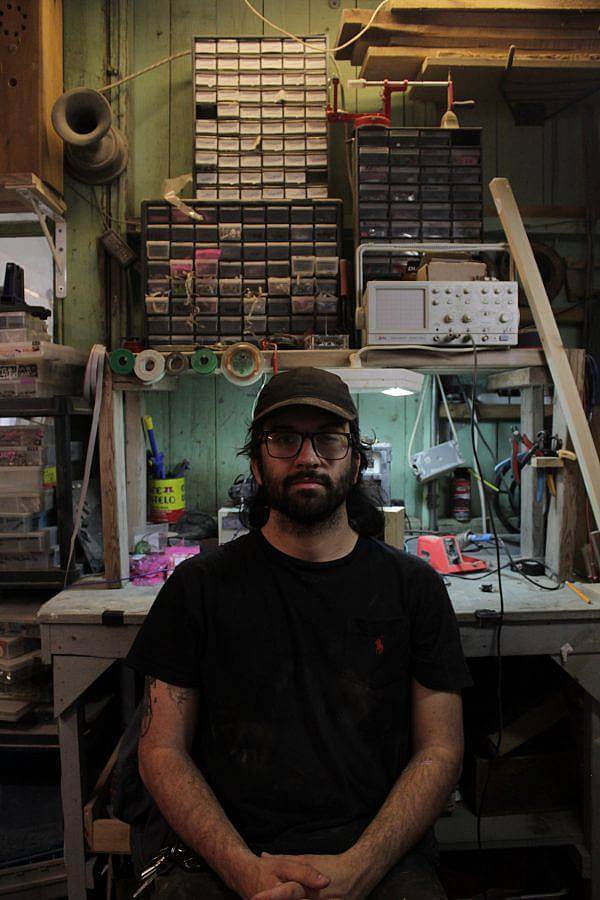Tell us a bit about yourself and what you do.
I’m a musician, instrument builder, artist. I work primarily with electronics and wood to build systems for experimenting with electronic sound. I do compose, record and perform music myself but my primary output is physical objects/instruments. I also help run a venue in Richmond called OSB.
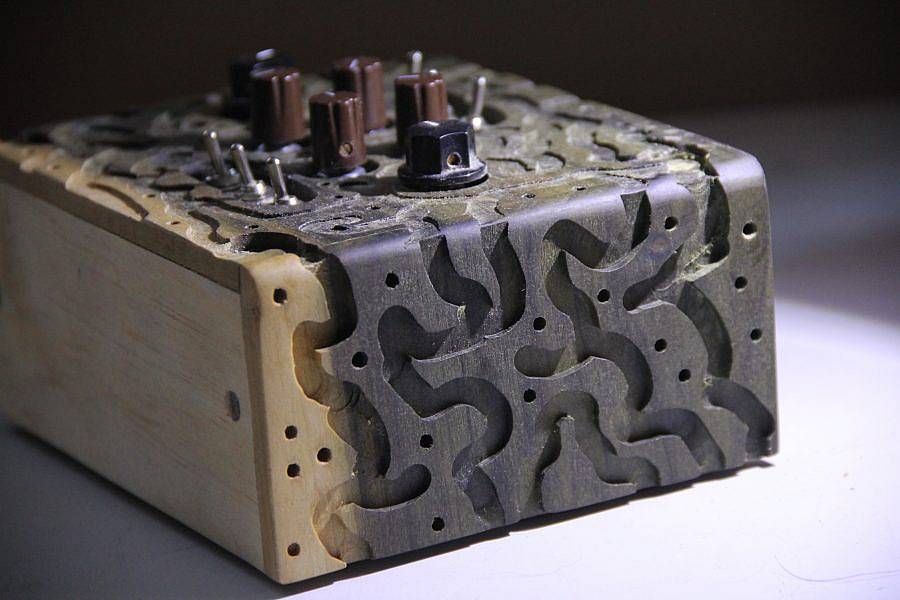
How did the name ‘Molasses Industries’ get born?
I was using the name Molasses to perform and record in the early days and then Industries got tagged on once it became a “commercial operation.” My memory for exact details is hazy but my friend Mariah originally coined the name as a cheeky derivative of my last name “Mullany.” I think I changed my facebook name to “Will Molasses” after my legal name ended up on a list of “Antifa Activists” published by some basement dwelling alt-right chud after Unite the Right in Charlottesville 2016, and it sort of stuck after that. Now that I’m typing this, I don’t actually think the name is that good for what I’m doing, but it’s been so long that now it’s this independent entity that I just have to serve.
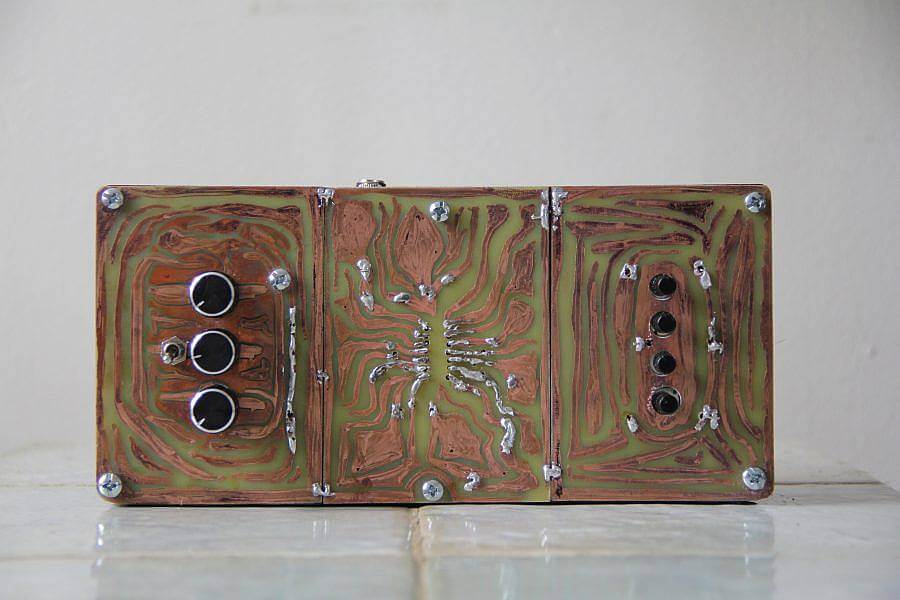
What was your introduction to electronic-based music and sound, and was there a specific moment that maybe flicked a switch for you?
I’ve been making music on and off computers since I was a kid. Me and my brother were making music on a demo copy of Ableton all through grade school. I stopped actively working on music for a while during college but ended up taking a few classes in the CCT department (composition and computing technology), specifically those taught by Peter Bussigel, at the University of Virginia which definitely pointed me in the direction I ended up taking. Soldering contact mics, making max patches, building speaker boxes, building my first synth using the fabled 40106 IC….but also getting exposed to a lot of the concepts that undergirded 20th century experimental music… I think Peter definitely saw that I caught the bug so he definitely went above and beyond to mentor me. Travis Thatcher — a great synthesist, designer, repair person, audio engineer — was also working at UVA at the time and was definitely impactful in those early days when my brain was a dry sponge for this stuff.
In retrospect, I think I lost interest in producing music due to an alienated feeling that computer music was giving me, and the “switch” was realizing that exploration in electronic music and sound could be done with ones hands on physical material.
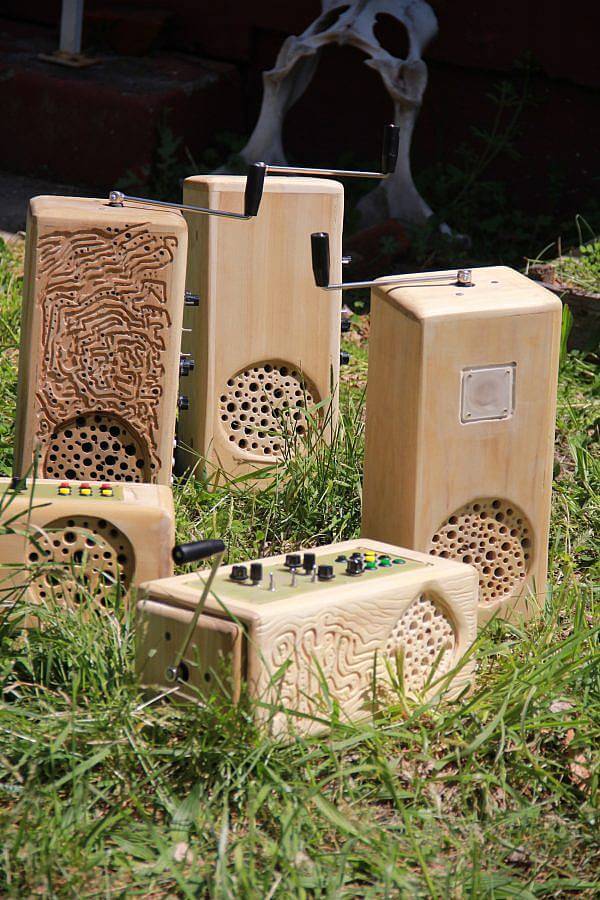
Would you consider the ‘instruments’ you make to be chaotic or anachronistic?
Both of those descriptors are accurate; I think these qualities are both byproducts of how I approach electronic design, which is definitely a bottom-up approach of letting the materials and components I’m working with shape the final product more so than an idea that I have from the outset. Most electronic instruments we encounter treat electronic design as a means to an end to produce some desired outcome and taking pains to tame the natural flaws and limitations of circuits. I tend to take the limits and quirks of circuits and try to let them do their thing. So the chaotic or “primitive” qualities of the instruments are really just following these circuits where they lead, and letting their quirks and “flaws” become interesting and unique aspects that the user is forced to grapple with.
What is your workflow like?
Everything I build starts from tinkering, taking notes, making recordings. I think I have a “circuit bendy” approach to design where I’ll use circuit boards or old instruments to play or mock up new ideas. Once I have a good idea of what I want a circuit to be I will get on Eagle (circuit design software), design a PCB and get them printed in China. This lets me move a lot quicker on these projects than just manually wiring from scratch. Then more tinkering, circuit bending, more revisions. I also am constantly losing focus in my shop and testing new setups and experimenting.
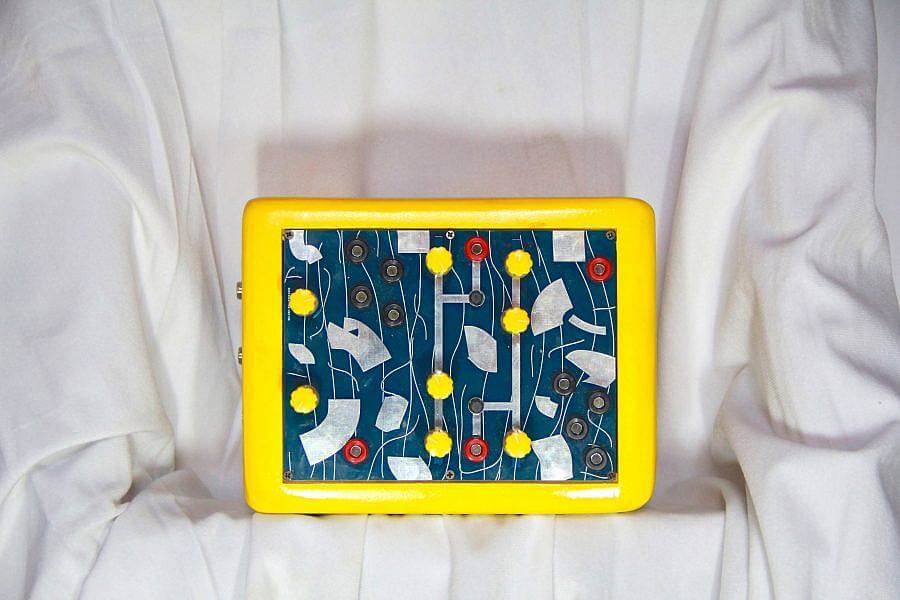
What have you been listening to recently?
Honestly right now, not much of anything in particular. I go through peaks and valleys of interest in recorded music. Sometimes I’ll be furiously looking for new things, others I just don’t automatically reach for anything. I do go to a fair number of live shows every week however, both for pleasure and work, and I’m very lucky that Richmond has no shortage of interesting gigs to go to.
Can you tell us about SONIKKAH?
SONIKKAH was a Hannukah experimental music mini-fest at a burrito restaurant. Myself and a few other jews in the local noise scene (of which there are shockingly many for a town like Richmond Virginia) had been joking about the idea and this year we just decided to run with it and it really blew away all expectations. It was primarily local acts with a few of out of towners (The Daxaphone Consort from NYC, Matriarch from western mass, Apologist x King of Jews from Philly). I think what excited me about the idea was how strange and incongruous a Jewish Noise Fest would seem to people that might not be familiar with Jews and Judaism (jews actually have a long rich history in experimental music). Everyone really went all out for the show….our friend Rob even built a giant menorah for the stage. There was and still isn’t any political agenda for Sonikkah, despite the fact that promo for the show lined up perfectly with the Kanye West Saying Stuff arc which served as incredible promotion for the fest. Next year I want to go bigger with the fest, maybe expand to two days with a candle service on the first night of Hannukah and some get some big headliners (we have vague plans to fly in Philip Glass and John Zorn in a helicopter).
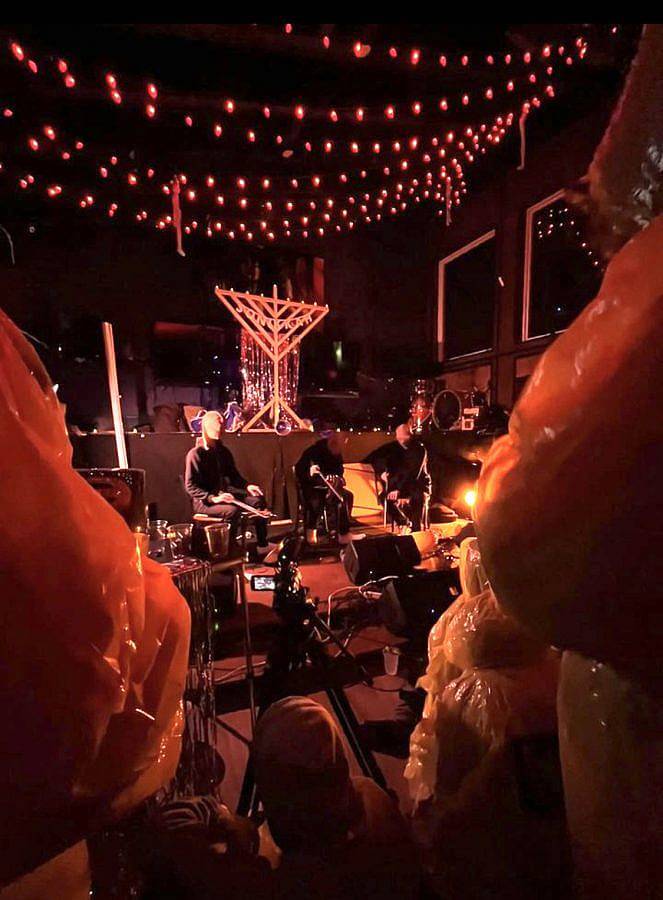
What kinds of people buy your instruments? Who’s your audience?
I honestly have no idea who buys my instruments or why they do; I’ve been lucky enough to see some of my instruments used in live settings but a lot of these boxes I pack up and ship off and never hear anything more. These instruments definitely lend themselves to experimental/noise music, but I’ve known them to be used for a wide range of music. I do want to go on record as saying that Trent Reznor owns on of the original run of Slimebox Micro, and I am 99% positive he has never used it.
Do you have any upcoming projects you can tell us about?
I’m working on large project with an artist from NYC named Drumloop. Its going to be a large piece for a music video employing the field of cymatics. I have a few new instruments in the works (a guitar pedal, largeish touch instrument). I’m also going to be doing a tour of the northeast at the end of July, which I’m working on materials and new instruments for.
Interview conducted by Milo Christie
